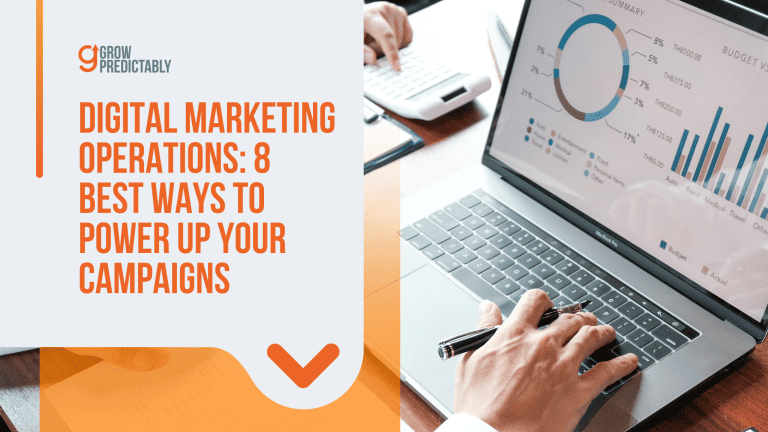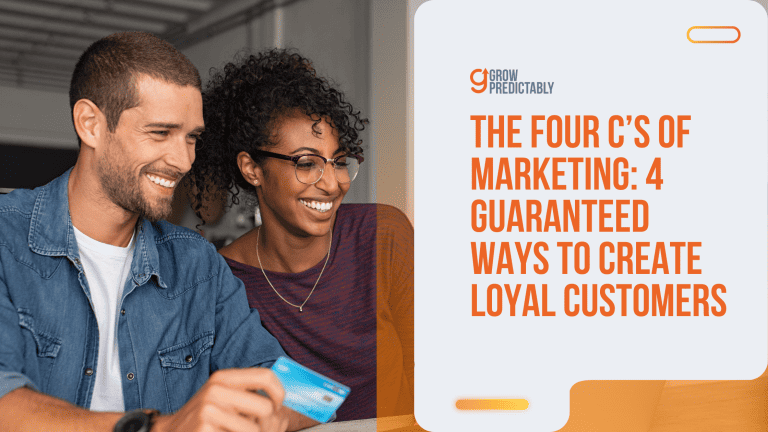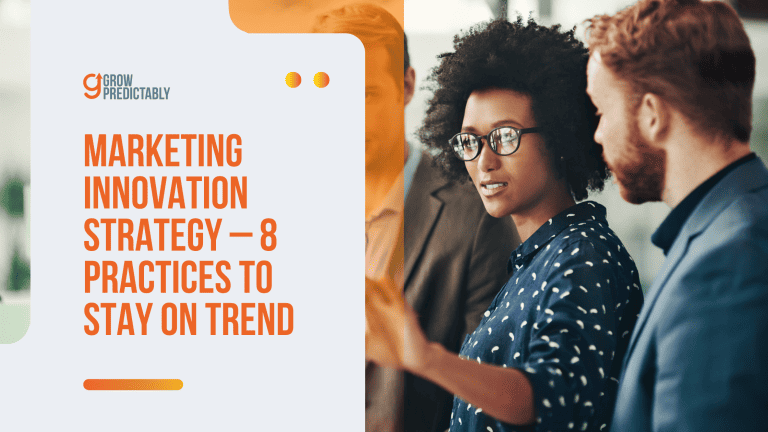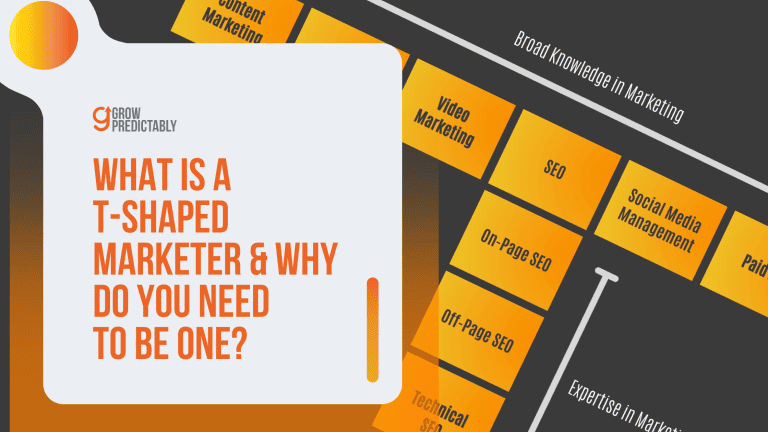Traditional Agency vs Growth Partner Agency: Which One Fits Your Business?
Most businesses hire agencies hoping for growth.
Instead, they get a bunch of “deliverables”—blogs, social posts, ads—and a fat invoice.
Sound familiar?
Here’s the hard truth: Traditional agencies don’t care about your revenue.
They care about keeping you on retainer.
That’s why they drown you in vanity metrics instead of real, bankable growth.
Now, a growth partner agency?
Whole different game.
They don’t just “do marketing.”
They obsess over scaling your business, optimizing conversions, and making sure every dollar you spend actually multiplies.
Because if you don’t make money, neither do they.
So, the question is: Do you want an agency that spends your budget, or a partner that makes you money?
Stick around, because I’m about to break down exactly how to tell the difference between a traditional agency vs growth partner agency—and why most agencies don’t want you to know this.
What is a Traditional Agency vs Growth Partner Agency
The best ideas come as jokes. Make your thinking as funny as possible.”
David Ogilvy
A traditional agency is a powerhouse of creativity and branding expertise, often operating at the intersection of art and commerce.
These agencies excel in crafting compelling narratives through branding, advertising, and public relations that resonate with audiences.
Their core services hinge on producing eye-catching advertisements, executing meticulous public relations strategies, building robust brand identities, and managing effective marketing campaigns.
They are the maestros of storytelling, turning brands into household names and driving consumer engagement through targeted campaigns.
Traditional agencies typically operate under a project-based working model.
This means they deliver fixed projects with predetermined deliverables, often as one-off campaigns.
Such a model allows clients to clarify expectations, timelines, and costs from the onset.
However, these projects are usually time-limited, focusing on immediate impact rather than long-term growth.
Strengths of Traditional Digital Marketing Agencies
- Creative Expertise: These agencies are staffed with seasoned creatives who excel in design, copywriting, and media production, ensuring your brand stands out.
- Established Processes: With years of experience, traditional agencies have honed their processes to deliver consistent results, using tried-and-true methodologies.
- Industry Recognition: Strong portfolios and award-winning campaigns lend credibility and prestige to traditional agencies, offering peace of mind to clients.
However, traditional agencies are not without their limitations.
One notable drawback is their potential lack of long-term strategy.
Their focus on project completion sometimes comes at the expense of sustained growth.
Additionally, they might be slower to adapt to rapidly changing market trends, which can be a significant disadvantage in today’s fast-paced business world.
What is a Growth Partner Agency?
A growth partner agency shifts the focus from mere project completion to achieving measurable business growth.
These agencies are not just service providers; they are strategic partners dedicated to scaling your business.
They delve deep into your business objectives and craft data-driven strategies to drive performance-based results.
Growth partner agencies are all about ongoing collaboration, aligning their efforts with your long-term business goals.
Unlike the fixed nature of traditional agencies, the growth partner model of a growth partner agency is dynamic and ever-evolving.
This involves continuous engagement with clients, employing data-driven strategies to refine and tweak campaigns based on real-time metrics.
Performance and results take center stage, ensuring every action contributes to measurable growth.
Strengths of Growth Partner Agencies
- Flexibility: Growth partner agencies can pivot strategies quickly in response to data insights, ensuring they stay ahead of market changes.
- ROI-Focused: These agencies emphasize return on investment, making sure each marketing dollar spent is optimized for growth.
- Scalability: As your business grows, these agencies can scale their services to meet increasing demands, providing sustainable support.
Nevertheless, growth partner agencies come with their own set of challenges.
They often require a higher upfront investment than traditional agencies, which can be a barrier for some businesses.
Moreover, achieving successful outcomes demands active client involvement, as ongoing communication and collaboration are critical to aligning agency actions with business objectives.
Key Differences Between Traditional Agencies and Growth Partner Agencies
Don’t find customers for your products, find products for your customers.”
Seth Godin
Navigating through the world of marketing is no small feat, and knowing the differences between traditional and growth partner agencies is crucial.
These differences can significantly affect how your business reaches its goals and evaluates its success.

Approach to Strategy
Traditional agencies thrive on the power of creativity.
They focus primarily on building brand identity and creating emotional connections through engaging branding and storytelling as part of their marketing strategy.
Their strategies are rooted deeply in the creative process:
- Strong emphasis on visual and narrative elements.
- Campaigns designed to captivate and engage audiences on an emotional level.
- Deliverables focus on brand resonance and market presence.
In contrast, growth partner agencies are driven by data and focus on tangible results:
- Employ data-driven strategies to understand market trends and consumer behaviors.
- Prioritize alignment with business objectives for measurable growth.
- Utilize analytics and metrics to refine strategies continuously.
Engagement Model
Traditional and growth partner agencies offer distinct engagement models, each catering to different client needs:
- Traditional Agencies: Operate on a project-based model, delivering services within a fixed scope and timeline. Engagements often conclude once initial objectives are met.
- Growth Partner Agencies: Foster long-term partnerships, embedding themselves as strategic business extensions. This ongoing collaboration allows for continuously optimizing strategies for emerging opportunities and challenges.
Measurement of Success
Success metrics and the management of marketing resources differ significantly between the two types of agencies:
- Traditional Agencies: Success is often judged by the level of brand awareness and the strength of market presence, emphasizing consumer perception and engagement.
- Growth Partner Agencies: Focus on measurable business outcomes such as revenue growth and ROI. Success is anchored in quantifiable metrics, ensuring efforts translate into business impact. Effective management of marketing resources is crucial to align growth marketing strategies with client goals, ensuring scalability and quality.
Flexibility
When it comes to adapting strategies, flexibility is a key differentiator:
- Traditional Agencies: Operate with fixed deliverables, adhering to predetermined plans and timelines, which can limit adaptability to changing market dynamics.
- Growth Partner Agencies: Utilize adaptive, iterative strategies. They thrive on flexibility, continuously refining tactics based on real-time performance data and analyzing various marketing channels to optimize effectiveness.
Cost Structure
The financial models also vary, influencing decision-making for many businesses:
- Traditional Agencies: Often work with fixed fees, providing clients with clear, upfront cost expectations.
- Growth Partner Agencies: May operate using performance-based or retainer models, aligning compensation with the success and growth of their client’s business. This incentivizes agencies to remain fully invested in achieving outstanding results.
Ultimately, choosing between these agency types hinges on what your business seeks—whether it’s harnessing creative power for brand building or driving measurable growth through strategic, data-driven partnerships.
Understanding these differences empowers businesses to align their goals with the right agency fit.
Which Businesses Benefit from a Traditional Agency?

If you’re running a business and aim to create a powerful brand presence through creative storytelling, a traditional agency is where you should be looking.
These agencies excel at crafting narratives that capture attention and resonate with your audience, making them the perfect fit for several businesses, including yours.
Are you looking to build your brand with stunning campaigns?
Traditional agencies are masters of brand-building and translating your identity into compelling visuals and messages. Expect:
- Eye-catching campaigns that help you stand out in a crowded marketplace.
- Enhanced consumer perception through experiential marketing.
- Cohesive brand experiences that connect with your audience on an emotional level.
Traditional marketing agencies can be your go-to solution for businesses with clear, short-term marketing goals.
If you need a project with specific deliverables and a set timeline, they will deliver efficiently, allowing you to hit your objectives without the need for a long-term commitment.
Operating in industries where brand perception is critical?
Whether you’re in luxury, fashion, or lifestyle sectors, traditional agencies have the creative expertise to turn heads and elevate your brand. Imagine:
- Aesthetic campaigns that resonate culturally and emotionally.
- Narratives that highlight exclusivity and prestige.
- High production quality assets that reinforce your brand’s image.
Which Businesses Benefit from a Growth Partner Agency?

If your business is on the fast track seeking scalable growth, a growth partner agency can be your best ally.
Their focus on data-driven strategies and measurable outcomes means they’re not just service providers—they’re partners in your growth journey.
Startups and scale-ups looking to spur rapid growth will find growth partner agencies invaluable. You’ll receive:
- Tailored strategies aligned with your ambitious growth targets.
- Data-driven insights that guide every strategic move.
- Access to growth frameworks designed to support scaling.
For those of you who need scalable digital marketing strategies rooted in data, growth partner agencies are ready to deliver.
In a world where data dictates market dynamics, these agencies provide flexibility and impactful campaigns that allow you to scale your business operations efficiently.
When ROI and measurable results are at the forefront of your strategy, a growth partner agency will ensure every dollar spent is maximized.
With them, you can look forward to:
- Conducting thorough market analysis to uncover new opportunities.
- Performance-based campaigns engineered to drive conversions.
- Continuous strategy optimization to maintain your competitive edge and maximize returns.
Selecting the right agency is more than a business decision—it’s pivotal to your success.
Whether you aim for creative brand excellence or measurable, data-driven growth, aligning your needs with the right agency expertise is crucial for achieving your business goals.
How to Decide Which Type of Agency Fits Your Business
Figuring out which agency fits your business best doesn’t have to be a headache.
Let’s break down a few key things to consider, so you can make a smart choice that drives real results.
Assess Your Business Goals
First, think about your business goals.
Are you more focused on getting your name out there and building brand awareness, or are you laser-focused on boosting revenue and seeing your bottom line grow?
A traditional agency could be your jam if you’re all about making a splash with your brand and capturing hearts with creative storytelling.
But if you aim to crank up the sales and see evident, data-driven growth through strategic business development, a growth partner agency might be your ticket.
- Brand Awareness: A traditional agency specializes in creative campaigns that make people notice you.
- Revenue Growth: A growth partner agency dives into data to boost your sales and ROI.
Evaluate Your Budget and Timeline
Next, take a look at your budget and timeline.
Can you commit to a long-term partnership, or do you need something quicker and more defined?
Traditional agencies often come with a set price for specific projects, which is great for clear budgeting.
Growth partner agencies might require a bigger initial investment, but they often work on a performance basis, which means they’re geared towards long-term success.
- Budget Choices: Decide if you want clear-cut fees or if you’re open to investing a bit more for results that pay off over time.
- Timeline Needs: Figure out if you need results fast with short-term projects or if you’re in it for the long haul.
Consider Your Industry and Competitive Landscape
Don’t forget to consider your industry and what the competition looks like.
If you’re in a field where image and branding are everything, like luxury or fashion, a traditional agency could really boost your brand’s image.
But if you’re in a cutthroat market where every dollar counts, a growth partner agency’s focus on data and analytics can give you an edge.
- Industry Fit: Match the agency’s strengths to your market needs.
- Competitive Edge: Look for an agency that gets your market and can help you outperform others.
Determine Your Preferred Level of Involvement
Finally, figure out how involved you want to be in the marketing process.
If you like a structured approach where you can step back and let the experts handle it, a traditional agency is a solid choice.
But if you want to be hands-on and part of every decision, a growth partner agency offers a collaborative approach that keeps you in the loop and lets you tweak strategies as you go, similar to how an in house marketing team would operate.
Involvement Level: Decide if you prefer a more hands-off, organized approach or a dynamic, interactive collaboration.
By thinking through these points, you’ll be set to choose the agency that not only fits your business needs but also pushes you toward your goals.
Quick Decision Checklist
Before you choose, consider the following questions:
- Do I need quick results or sustainable growth?
- Am I ready for strategic changes across my business?
- What’s my budget structure—project-based or ongoing?
- Do I want execution-only or strategic guidance?
- How much involvement do I want from my agency?
Red-Yellow-Green Status Check
Rate your readiness in these key areas before making a decision:
🔴 Red: “I need this fixed now”
🟡 Yellow: “I’m working on this”
🟢 Green: “This is running smoothly”
Areas to Check:
- Marketing systems
- Sales processes
- Business operations
- Growth tracking
- Team alignment
If you see mostly reds, start with a traditional agency to address immediate issues.
If you see yellows and greens, you’re ready for a growth partner to take you further.
Remember: There’s no wrong choice—just the right timing for your business needs.
Start where you are, and you can always switch as your needs change.
The Future of Agencies: Blurring the Lines
As the marketing world continues to evolve, the distinction between traditional agencies and growth partner agencies is becoming less clear-cut.
Some digital marketing agencies are embracing a more hybrid model, blending creative expertise with data-driven strategies to meet the diverse needs of modern businesses.
This approach allows them to be versatile partners, capable of delivering both captivating brand narratives and measurable growth outcomes.
Agencies adopting hybrid models are changing the game by integrating the best of both worlds.
They’re combining the storytelling prowess and creative assets typical of traditional agencies with the performance-centric focus of growth partner agencies.
This evolution is particularly important as businesses seek agencies that can adapt to their evolving needs, ensuring that creative efforts are both impactful and quantifiable.
Hybrid Advantages:
- Comprehensive Services: Ability to provide a full spectrum of services from brand building to performance marketing.
- Agility: Swiftly adapting strategies to meet changing goals and market demands.
- Insight-Driven Creativity: Crafting creativity that is backed by data insights to maximize impact.
In this dynamic atmosphere, businesses looking for agency partners should seek those who are innovative and versatile enough to handle the complexities of a multi-faceted marketing world.
Agencies embracing hybrid models and prioritizing adaptability are well-positioned to provide significant value, helping businesses successfully navigate and anticipate future challenges while achieving their strategic goals.
FAQs
The Power of Informed Choices
We’ve explored the key differences between traditional agencies and growth partners, broken down their strengths and weaknesses, and introduced tools like the Growth Scorecard to help guide your decision.
By understanding the role each type plays, you can make a confident, informed choice that aligns with your goals.
Marketing is more than just a set of tactics—it’s about building a strategy that drives real impact.
The agency you choose should not only execute campaigns but also contribute to measurable business growth.
The right partner will help you transform leads into long-term revenue and ensure your marketing efforts create lasting success.
Which agency model aligns best with your business’s current stage?
Traditional for quick results, or a growth partner for sustained scaling?






